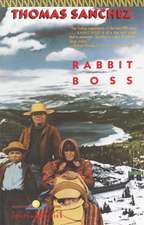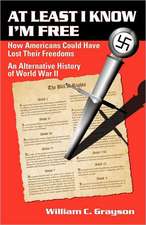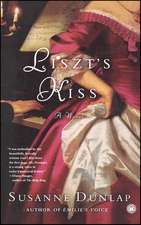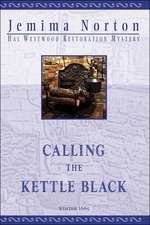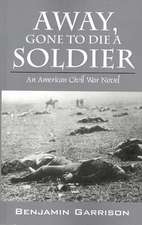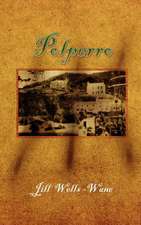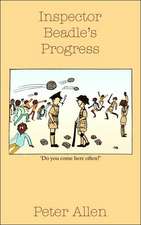Gemini: The Eighth Book of the House of Niccolo: House of Niccolo, cartea 08
Autor Dorothy Dunnetten Limba Engleză Paperback – 30 apr 2001
Now the opportunity for redemption is at hand, but Nicholas soon finds himself pursuing his objectives amid a complex, corrosive power struggle centering on the Scottish royal family but closely involving the powerful merchants of Edinburgh, the gentry, the clergy, the English (ever seeking an excuse to pounce on their neighbor to the north), the French, the Burgundians. His presence soon draws Gelis and their son Jodi to Scotland, as well as Nicholas's companions and subordinates in many a past endeavor--Dr. Tobias and his wife Clémence, Mick Crackbene, John le Grant, and Andro Wodman among them. Here, too, Nicholas meets again with others who have had an influence, for good or evil, in his life: King James III of Scotland and his rebellious siblings; the St. Pols: Jordan, Simon, and young Henry; Mistress Bel of Cuthilgurdy and David de Salmeton; Anselm Adorne and Kathi his niece. Caught up in, and sometimes molding, the course of great events, Nicholas exhibits by turns the fierce silence with which he masks his secrets, and the explosive, willful gaiety that binds men, women, and children to him. And as the secrets of his birth and heritage come to light, Nicholas has to decide whether he desires to establish a future in Scotland for himself and his family, and a home for his descendants.
Gemini brings to a dazzling conclusion Dorothy Dunnett's House of Niccolò series (synopsized in this volume), in which this peerless novelist has vividly re-created the dramatic, flamboyant world of the early Renaissance in historical writing of scrupulous authenticity and in the entrancing portrait of her visionary hero. Now, in a book infused with wit and poetry, emotion and humor, action and mystery, she brings Nicholas de Fleury at last to choose his heart's home, where he can exercise all his skills as an advisor to kings and statesmen, as a husband, a father, and a leader of men--and where, perhaps, we will discern a connection between him and that other remarkable personality, Francis Crawford, whose exploits Lady Dunnett recorded so memorably in The Lymond Chronicles.
| Toate formatele și edițiile | Preț | Express |
|---|---|---|
| Paperback (2) | 121.63 lei 6-8 săpt. | |
| Vintage Publishing – 30 apr 2001 | 137.32 lei 3-5 săpt. | |
| Penguin Books – 27 iun 2001 | 121.63 lei 6-8 săpt. |
Preț: 137.32 lei
Nou
Puncte Express: 206
Preț estimativ în valută:
26.27€ • 27.44$ • 21.70£
26.27€ • 27.44$ • 21.70£
Carte disponibilă
Livrare economică 25 martie-08 aprilie
Preluare comenzi: 021 569.72.76
Specificații
ISBN-13: 9780375708565
ISBN-10: 0375708561
Pagini: 720
Ilustrații: WITH MAPS AND GENEALOGY
Dimensiuni: 132 x 202 x 34 mm
Greutate: 0.57 kg
Editura: Vintage Publishing
Seria House of Niccolo
ISBN-10: 0375708561
Pagini: 720
Ilustrații: WITH MAPS AND GENEALOGY
Dimensiuni: 132 x 202 x 34 mm
Greutate: 0.57 kg
Editura: Vintage Publishing
Seria House of Niccolo
Notă biografică
Dorothy Dunnett was born in 1923 in Dunfermline, Fife, Scotland. Her time at Gillespie's High School for Girls overlapped with that of the novelist Muriel Spark. From 1940-1955, she worked for the Civil Service as a press officer. In 1946, she married Alastair Dunnett, later editor of The Scotsman.
Dunnett started writing in the late 1950s. Her first novel, The Game of Kings, was published in the United States in 1961, and in the United Kingdom the year after. She published 22 books in total, including the six-part Lymond Chronicles and the eight-part Niccolo Series, and co-authored another volume with her husband. Also an accomplished professional portrait painter, Dunnett exhibited at the Royal Scottish Academy on many occasions and had portraits commissioned by a number of prominent public figures in Scotland.
She also led a busy life in public service, as a member of the Board of Trustees of the National Library of Scotland, a Trustee of the Scottish National War Memorial, and Director of the Edinburgh Book Festival. She served on numerous cultural committees, and was a Fellow of the Royal Society of Arts. In 1992 she was awarded the Office of the British Empire for services to literature. She died on November 9, 2001, at the age of 78.
Dunnett started writing in the late 1950s. Her first novel, The Game of Kings, was published in the United States in 1961, and in the United Kingdom the year after. She published 22 books in total, including the six-part Lymond Chronicles and the eight-part Niccolo Series, and co-authored another volume with her husband. Also an accomplished professional portrait painter, Dunnett exhibited at the Royal Scottish Academy on many occasions and had portraits commissioned by a number of prominent public figures in Scotland.
She also led a busy life in public service, as a member of the Board of Trustees of the National Library of Scotland, a Trustee of the Scottish National War Memorial, and Director of the Edinburgh Book Festival. She served on numerous cultural committees, and was a Fellow of the Royal Society of Arts. In 1992 she was awarded the Office of the British Empire for services to literature. She died on November 9, 2001, at the age of 78.
Extras
From Venice to Caffa, from Antwerp to the Gold Coast of Africa, merchants anchored their ships and unloaded their cannon and flipped open their ledgers as if in twenty years nothing had changed, and nothing was about to change now. As if old men did not die, or younger ones grow up, eventually. There was no fool in Europe, these days, who treated trade as a joke. All that sort were long sobered, or dead. Or were temporarily unavailable like Nicholas de Fleury, who had removed himself to the kingdom of Scotland, far to the
north of the real world of pretty women, and international intrigue, and the benefits of social and financial success.
North of the real world, it was noticed quite soon that Nicholas the Burgundian was back. The first to suffer was the bailie of Berwick, who had a house of three floors and good eyesight, so that he personally observed this big Flemish ship plunging up from the south and bucking round into the mouth of the river. He held his breath until the manoeuvre was finished, for the Karel of Veere was the first merchantman to reach Scotland this season, and he had serious need of its news. When the harbour-bell clanged through the gale, Thomas Yare closed his shutters and sent a clerk pelting down to the wharf with an invitation to the Karel's seamaster. Then he had a word with his wife, and strode down through the garden to the red-painted warehouse, where his business room was.
Thomas Yare, an active Scot of burnished acuity, wished to entertain Mick Crackbene of the Karel before anyone else. Thomas Yare was bailie and chamberlain of the town of Berwick-upon-Tweed, and the River Tweed was the frontier with England, which meant that one did not bellow sensitive news, even now, in times of miraculous peace. Tom Yare was a native of these parts but, until recently, had earned most of his living in Edinburgh. That was because, until recently, the English owned Berwick. Berwick had switched sides between England and Scotland thirteen times since it was founded. Half its footloose population were spies, and the other half smugglers.
So Yare wanted the big Scandinavian's news for himself. He would get it. They had an understanding. Trade news was worth money. At whatever port they arrived, no matter how high the bribe, Crackbene's men never talked. Unless, of course, first primed by Crackbene. Crackbene or one of the merchants he carried. You never knew who that might be.
There were two with Crackbene today. Pouring ale in his office, Tom Yare heard the footsteps and doubled the number of tankards. When the door thundered back on its hinges and the red-faced master marched in, Yare winced, waved the pitcher in welcome, and then set it down to go forward, hand outstretched. Behind Crackbene was another robust figure of door-cracking capacity: Andro Wodman, the Scots-Flemish consul with his blue jowl and fighting-man's shoulders and twice-broken nose, all of which Yare duly greeted. And behind Wodman approached another of the same breed, heaven help us: so big his furzy brown head and soaked hat barely got past the lintel.
Tom Yare dropped his welcoming hand and also released, very slightly, his business gentleman's smooth-polished jaw as he set eyes on a man he hadn't seen for four years.
Nicholas de Fleury of Bruges. Ser Nicholas, do you mind: former banker, former dyemaster, former owner of armies, stepping over nice as a hen and unpeeling a soaked sailing-cloak to stand gazing down (Tom Yare straightened) with that bloody disarming smile and two dimples. They knew one another. The Burgundian had once made the bailie a very fine profit in cod.
The first emotion felt by Tom Yare, and most others, upon meeting Nicol de Fleury, was an urge to be friendly. The next, based on experience, was a heady mixture of horror and glee.
De Fleury said, 'Are you going to be sick?'
Tom Yare, his face warming, recovered. 'Damn you. Why didn't you warn me?'
'I wish I had,' said de Fleury. 'You might have managed something better than ale. Ale? Business bad, Tom? Wish you had firm news from somewhere?' It brought back immediately all that fascinated Yare about Nicol de Fleury, and all that he distrusted as well.
'Mick prefers ale,' the Conservator observed, shaking wet from his bonnet.
'Nobody knew you were coming, Nicholas, with your luxurious Persian tastes. How are you, Tom?'
'Dumbfoun'ered,' said Yare with unusual honesty. He opened the door, called an order, and shut it swiftly again. 'Have ye spoken to anyone yet?'
Crackbene's evil smile broadened. The consul, Wodman, said, 'What about?'
De Fleury sat down on a coffer, which groaned. 'Can't you guess? He wants to know if the siege of Nancy is over. It is.'
'That's old news,' Wodman said cheerfully. 'He's bound to know that.'
Tom Yare didn't waste time being exasperated. He said, 'There hasn't been a ship from the south since Epiphany. You're the first.'
'It's a good ship, the Karel,' said the Scandinavian shipmaster proudly. It was purgatory.
'But you must have had dispatches by road,' Wodman said. 'Wardens' runners. Envoys. Lawyers on business. Wenches with well-informed clients. After all, that's England, over the river.'
'I remember,' said Yare. Men behaved like this, safely landed from sea. Nicol de Fleury behaved like this far too often. Tom Yare was a solid, fit man, but lodged between de Fleury and Crackbene he felt small and thumbed, like a rosary bead. He continued in his soft, deliberate voice, defying the burr in his speech that Margaret always said she found sweet. 'The roads [rhodes] have been closed, and the place is jumping with rumours. Wheat prices are surging already. The word [wuhd] is that there was a disaster at Nancy, and the richest prince in the West is a corpse, with an unmarried lass as his heiress. True [tehoo] or not?'
Someone tapped on the door. Wine came in, and was poured. No one spoke. When the door closed: 'The Duke of Burgundy is officially dead,' de Fleury said, saluting the ceiling and drinking. 'I was there. That isn't a bad little Osey.'
'Tell me,' said Tom Yare. Then he listened to what he was given: the unemotional account of a disaster.
The Grand Prince of the West had been discovered dumped dead in a ditch after a mindless battle with Swiss and Lorrainers. The news had taken a long time to spread. Before de Fleury left Flanders, he had had an audience with the widowed Dowager Duchess, and discussed the future with men of commitment like Gruuthuse, Hugonet and Adorne. For, of course, France would try to reclaim her borders, and the heiress would marry someone who might not suit Flanders at all. So there were implications.
They discussed them. Wodman contributed: he had once been a soldier in France. By the end, Yare had grasped that de Fleury had actually taken part in the fight and been wounded. Most of his companions were dead. Some were captives about to be ransomed, among them two Scots: the gunner John, and that decent young merchant, Robin of Berecrofts, who had also been injured.
Yare said, 'Was Robin hurt bad?' It was the business-man in him that spoke. The noble Anselm Adorne of Bruges bought and sold through his kindred in Scotland, and Robin had wed Adorne's niece. A trading empire was involved.
De Fleury said, 'I don't know. He was shot. It looked serious enough at the time.'
Yare said, 'You'll want to tell his eme and his father in Edinburgh. What else have ye in mind while you're there?'
He was entitled to know. Four years ago, without explanation, the Burgundian had closed all his ventures in Scotland and gone, abandoning the stripling Court which had befriended him. Now he was back, with a trading-ship which belonged to his wife. All the years de Fleury was absent, his wife Gelis had successfully run a good business, as you would expect of a van Borselen of Veere. She had an eight-year-old son by her husband. Tom Yare's own sharp-witted wife admired her acumen, but not what she had heard of her casual marriage. Yare thought de Fleury (in this respect only) a fool. Yare also admired Gelis van Borselen, who was still at home in Bruges and, it seemed, abandoned again. He had met other husbands like this. Men who could sail, but not navigate.
De Fleury hadn't mentioned his wife, except in the context of business. Nor did he now. He said, 'I thought I'd see what was happening. I suppose I'd better report what I've told you. Then I'll probably pick up a cargo and leave.'
Yare said, 'They'll want you to stay.'
'They?' said de Fleury.
'The King. The Council. The merchants. It depends whom you plan to see first.' He let a pause develop unhindered.
De Fleury said, 'Perhaps I should ask your advice about that. As you said, it is sensitive news, and incautious handling could cause damage.'
Yare said, 'What have you heard?'
Wodman glanced at his fellow passenger, but said nothing. De Fleury said, 'Only what reached Bruges before the end of the year. The King's brothers and sisters are young, and occasionally wilful. Sometimes merchants and even envoys find it better to speak first to the older men of the Council, who can then choose the right time to debate the issue with King James or his brothers. But I may have heard wrongly.'
'No,' said Yare. He was aware that he had been spared an explanation he would not have wanted to give. He was bailie of Berwick, but he was also one of the small circle -- Scheves, the Prestons, the Sinclairs -- who supplied personal service to the royal household; whose ships brought in baby night coats and wine-barrels and salmon, while some of their houses in Edinburgh were grand enough to lodge envoys. He heard a lot of personal gossip and, of course, used it. But he was careful to whom he imparted it.
Now he said, 'What you heard is true. It is a young Court, as you say. The Duke of Burgundy's death raises complex issues that the King's advisers will want to consider.'
'So that perhaps I should see them initially,' de Fleury said. 'But if the King summons me first, there is not much I can do.'
'No,' said Yare. 'Once he knows that you've landed, that is. But you could be sorely held up. It's a bad beat sometimes, north, in this wind.'
'And Mick Crackbene, as we all know, can't set a course. Yes, that's true,' de Fleury said, lifting a brow at his shipmaster.
'If you say so,' the big fair man said blandly. And to Yare: 'I didn't tell you. We've brought your tombstones. Lovely, they are. One for you, one for your lady. Come and see when we get them ashore.'
He promised. As the talk turned to more everyday channels, it occurred to Tom Yare that there was a piece of gossip he should give to Nicol de Fleury. Something heard by Yare's brother the friar, who lived near the Priory that taught the King's youngest sister in Haddington. He would tell de Fleury, in private.
north of the real world of pretty women, and international intrigue, and the benefits of social and financial success.
North of the real world, it was noticed quite soon that Nicholas the Burgundian was back. The first to suffer was the bailie of Berwick, who had a house of three floors and good eyesight, so that he personally observed this big Flemish ship plunging up from the south and bucking round into the mouth of the river. He held his breath until the manoeuvre was finished, for the Karel of Veere was the first merchantman to reach Scotland this season, and he had serious need of its news. When the harbour-bell clanged through the gale, Thomas Yare closed his shutters and sent a clerk pelting down to the wharf with an invitation to the Karel's seamaster. Then he had a word with his wife, and strode down through the garden to the red-painted warehouse, where his business room was.
Thomas Yare, an active Scot of burnished acuity, wished to entertain Mick Crackbene of the Karel before anyone else. Thomas Yare was bailie and chamberlain of the town of Berwick-upon-Tweed, and the River Tweed was the frontier with England, which meant that one did not bellow sensitive news, even now, in times of miraculous peace. Tom Yare was a native of these parts but, until recently, had earned most of his living in Edinburgh. That was because, until recently, the English owned Berwick. Berwick had switched sides between England and Scotland thirteen times since it was founded. Half its footloose population were spies, and the other half smugglers.
So Yare wanted the big Scandinavian's news for himself. He would get it. They had an understanding. Trade news was worth money. At whatever port they arrived, no matter how high the bribe, Crackbene's men never talked. Unless, of course, first primed by Crackbene. Crackbene or one of the merchants he carried. You never knew who that might be.
There were two with Crackbene today. Pouring ale in his office, Tom Yare heard the footsteps and doubled the number of tankards. When the door thundered back on its hinges and the red-faced master marched in, Yare winced, waved the pitcher in welcome, and then set it down to go forward, hand outstretched. Behind Crackbene was another robust figure of door-cracking capacity: Andro Wodman, the Scots-Flemish consul with his blue jowl and fighting-man's shoulders and twice-broken nose, all of which Yare duly greeted. And behind Wodman approached another of the same breed, heaven help us: so big his furzy brown head and soaked hat barely got past the lintel.
Tom Yare dropped his welcoming hand and also released, very slightly, his business gentleman's smooth-polished jaw as he set eyes on a man he hadn't seen for four years.
Nicholas de Fleury of Bruges. Ser Nicholas, do you mind: former banker, former dyemaster, former owner of armies, stepping over nice as a hen and unpeeling a soaked sailing-cloak to stand gazing down (Tom Yare straightened) with that bloody disarming smile and two dimples. They knew one another. The Burgundian had once made the bailie a very fine profit in cod.
The first emotion felt by Tom Yare, and most others, upon meeting Nicol de Fleury, was an urge to be friendly. The next, based on experience, was a heady mixture of horror and glee.
De Fleury said, 'Are you going to be sick?'
Tom Yare, his face warming, recovered. 'Damn you. Why didn't you warn me?'
'I wish I had,' said de Fleury. 'You might have managed something better than ale. Ale? Business bad, Tom? Wish you had firm news from somewhere?' It brought back immediately all that fascinated Yare about Nicol de Fleury, and all that he distrusted as well.
'Mick prefers ale,' the Conservator observed, shaking wet from his bonnet.
'Nobody knew you were coming, Nicholas, with your luxurious Persian tastes. How are you, Tom?'
'Dumbfoun'ered,' said Yare with unusual honesty. He opened the door, called an order, and shut it swiftly again. 'Have ye spoken to anyone yet?'
Crackbene's evil smile broadened. The consul, Wodman, said, 'What about?'
De Fleury sat down on a coffer, which groaned. 'Can't you guess? He wants to know if the siege of Nancy is over. It is.'
'That's old news,' Wodman said cheerfully. 'He's bound to know that.'
Tom Yare didn't waste time being exasperated. He said, 'There hasn't been a ship from the south since Epiphany. You're the first.'
'It's a good ship, the Karel,' said the Scandinavian shipmaster proudly. It was purgatory.
'But you must have had dispatches by road,' Wodman said. 'Wardens' runners. Envoys. Lawyers on business. Wenches with well-informed clients. After all, that's England, over the river.'
'I remember,' said Yare. Men behaved like this, safely landed from sea. Nicol de Fleury behaved like this far too often. Tom Yare was a solid, fit man, but lodged between de Fleury and Crackbene he felt small and thumbed, like a rosary bead. He continued in his soft, deliberate voice, defying the burr in his speech that Margaret always said she found sweet. 'The roads [rhodes] have been closed, and the place is jumping with rumours. Wheat prices are surging already. The word [wuhd] is that there was a disaster at Nancy, and the richest prince in the West is a corpse, with an unmarried lass as his heiress. True [tehoo] or not?'
Someone tapped on the door. Wine came in, and was poured. No one spoke. When the door closed: 'The Duke of Burgundy is officially dead,' de Fleury said, saluting the ceiling and drinking. 'I was there. That isn't a bad little Osey.'
'Tell me,' said Tom Yare. Then he listened to what he was given: the unemotional account of a disaster.
The Grand Prince of the West had been discovered dumped dead in a ditch after a mindless battle with Swiss and Lorrainers. The news had taken a long time to spread. Before de Fleury left Flanders, he had had an audience with the widowed Dowager Duchess, and discussed the future with men of commitment like Gruuthuse, Hugonet and Adorne. For, of course, France would try to reclaim her borders, and the heiress would marry someone who might not suit Flanders at all. So there were implications.
They discussed them. Wodman contributed: he had once been a soldier in France. By the end, Yare had grasped that de Fleury had actually taken part in the fight and been wounded. Most of his companions were dead. Some were captives about to be ransomed, among them two Scots: the gunner John, and that decent young merchant, Robin of Berecrofts, who had also been injured.
Yare said, 'Was Robin hurt bad?' It was the business-man in him that spoke. The noble Anselm Adorne of Bruges bought and sold through his kindred in Scotland, and Robin had wed Adorne's niece. A trading empire was involved.
De Fleury said, 'I don't know. He was shot. It looked serious enough at the time.'
Yare said, 'You'll want to tell his eme and his father in Edinburgh. What else have ye in mind while you're there?'
He was entitled to know. Four years ago, without explanation, the Burgundian had closed all his ventures in Scotland and gone, abandoning the stripling Court which had befriended him. Now he was back, with a trading-ship which belonged to his wife. All the years de Fleury was absent, his wife Gelis had successfully run a good business, as you would expect of a van Borselen of Veere. She had an eight-year-old son by her husband. Tom Yare's own sharp-witted wife admired her acumen, but not what she had heard of her casual marriage. Yare thought de Fleury (in this respect only) a fool. Yare also admired Gelis van Borselen, who was still at home in Bruges and, it seemed, abandoned again. He had met other husbands like this. Men who could sail, but not navigate.
De Fleury hadn't mentioned his wife, except in the context of business. Nor did he now. He said, 'I thought I'd see what was happening. I suppose I'd better report what I've told you. Then I'll probably pick up a cargo and leave.'
Yare said, 'They'll want you to stay.'
'They?' said de Fleury.
'The King. The Council. The merchants. It depends whom you plan to see first.' He let a pause develop unhindered.
De Fleury said, 'Perhaps I should ask your advice about that. As you said, it is sensitive news, and incautious handling could cause damage.'
Yare said, 'What have you heard?'
Wodman glanced at his fellow passenger, but said nothing. De Fleury said, 'Only what reached Bruges before the end of the year. The King's brothers and sisters are young, and occasionally wilful. Sometimes merchants and even envoys find it better to speak first to the older men of the Council, who can then choose the right time to debate the issue with King James or his brothers. But I may have heard wrongly.'
'No,' said Yare. He was aware that he had been spared an explanation he would not have wanted to give. He was bailie of Berwick, but he was also one of the small circle -- Scheves, the Prestons, the Sinclairs -- who supplied personal service to the royal household; whose ships brought in baby night coats and wine-barrels and salmon, while some of their houses in Edinburgh were grand enough to lodge envoys. He heard a lot of personal gossip and, of course, used it. But he was careful to whom he imparted it.
Now he said, 'What you heard is true. It is a young Court, as you say. The Duke of Burgundy's death raises complex issues that the King's advisers will want to consider.'
'So that perhaps I should see them initially,' de Fleury said. 'But if the King summons me first, there is not much I can do.'
'No,' said Yare. 'Once he knows that you've landed, that is. But you could be sorely held up. It's a bad beat sometimes, north, in this wind.'
'And Mick Crackbene, as we all know, can't set a course. Yes, that's true,' de Fleury said, lifting a brow at his shipmaster.
'If you say so,' the big fair man said blandly. And to Yare: 'I didn't tell you. We've brought your tombstones. Lovely, they are. One for you, one for your lady. Come and see when we get them ashore.'
He promised. As the talk turned to more everyday channels, it occurred to Tom Yare that there was a piece of gossip he should give to Nicol de Fleury. Something heard by Yare's brother the friar, who lived near the Priory that taught the King's youngest sister in Haddington. He would tell de Fleury, in private.
Recenzii
“Dunnett has brought her House of Niccol˜ series to a triumphant end.”–The Seattle Times/Post Intelligencer
“Well endowed with shocking revelations.... Words like ‘sprawling,’ ‘intrigue,’ ‘panoramic’ and ‘colorful’... seem like pale understatements when applied to Dunnett.”–Newsday
“Well endowed with shocking revelations.... Words like ‘sprawling,’ ‘intrigue,’ ‘panoramic’ and ‘colorful’... seem like pale understatements when applied to Dunnett.”–Newsday
Descriere
In the stunning finale to "The House of Niccolo" series, Nicholas de Fleury returns to Scotland to seek personal redemption and a haven for his recently reunited family. There he soon becomes swept up in a political maelstrom involving King James III of Scotland.








